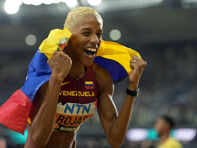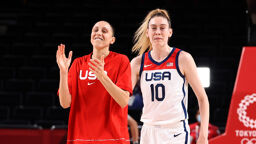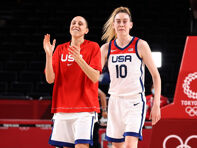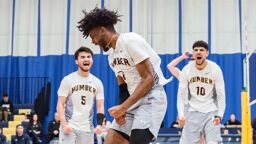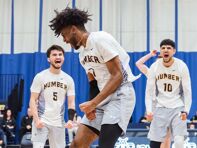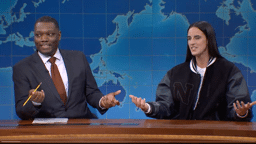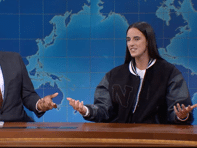“When did you know?”
That’s one of the first questions I get when people find out I’m transgender. While there were possible signs from a fairly young age, I didn’t even consider that I might be trans until about a year ago, back when life was far simpler than it is now.
May 2016. Recently graduated from UC Berkeley, I was getting ready to start graduate school at the University of Nevada, Reno. My life up to that point was fairly straightforward — I considered myself an average cisgender, heterosexual, white male with no big issues in my life.
One evening, I came across a post online that resonated with me: a 17 year-old guy talking about his feminization fetish and interest in being a girl. I’d had those same feelings for the last decade but hid them from the world, afraid of what people might think of me. I never thought too much of them, convincing myself that it was just a sex thing and nothing more, but the accompanying comments indicated a different possibility.
Sprinkled among the many comments were some by trans women, saying that they had those feelings as well before they realized they were trans. It then hit me that I might be a trans woman too.
This staggered me since I had never remotely considered that I might be trans. I fervently began looking up information about trans women, trying to find other experiences and stories to see if they matched my own. That began my questioning and eventual realization that I am indeed a trans woman.
Ultimate is an extremely welcoming and open sport and community and I felt accepted from the moment I stepped onto the field for the first time.
Summer 2016. After moving to Reno I began to get integrated with the local ultimate Frisbee community, playing summer league and pickup and slowly getting to know people. However, I didn’t tell any people in ultimate that I was trans the whole summer despite starting hormones at the end of June. I was worried about losing the only friends that I had made in my new locale and wanted to keep things low-key as I began my transition.
While the summer was occasionally lonely because I was dealing with being newly trans in a new city with no close friends, ultimate carried me through. Ultimate is an extremely welcoming and open sport and community and I felt accepted from the moment I stepped onto the field for the first time. My next hurdle came in the fall, when I had to decide what to do about the college teams.
Fall 2016. As the semester and tryouts began, I decided to initially play with the men’s team since I was not publicly out. However, I knew that I needed to start telling my teammates and fellow ultimate players.
I first came out to my local summer league captain, Nicole, while the two of us were throwing around sometime in October. In passing, I mentioned that I was transgender to see how she would react. Surprisingly, she didn’t, at least not appreciably. After taking a few seconds to process the news, we simply continued throwing and talking, and I explained how I realized I was trans and the process I was going through. She was very supportive and excited at the prospect of my playing with the women’s team, and I felt better about coming out to other ultimate people.
Once I was out to Nicole, the floodgates began to open and I started telling more and more people. Next was the coach of the men’s team, Jason, as cuts were coming up and I wanted him to be clear about my situation. While I likely could have made the
A-team, I asked to be on the B-team for the fall semester as I was probably going to start playing with the women’s team in the spring. He had no issues with it and was supportive of whatever decisions I was making, and when cuts were made I was put on the B-team.
This prompted further conversations and coming-outs with teammates and to a person they were supportive and encouraging. Not a single person reacted negatively and most just rolled with the news like it was no big deal.
In part, I think these reactions came because trans people are starting to be more visible and open, particularly in college settings. To most of my teammates I wasn’t the first trans person they knew, and often wasn’t even the second or third.
As the semester wound down and most of both the women’s and men’s teams knew I was trans, I started to get involved with the women’s team. I was welcomed with open arms and even while still presenting male publicly I was invited to team dinners and began to dress in a more feminine manner, something that would only continue to grow as we moved towards the spring semester.
Spring 2017. I started going “full-time” spring semester, after winter break gave me time to start filling out my new wardrobe. Besides a few double-takes the first week of class, things were fairly uneventful. I began practicing with the women’s team, although I was unable to play tournaments with the team due to ineligibility from being trans.
USA Ultimate, the governing body for ultimate in the U.S., follows NCAA policy when it comes to regulating trans individuals participation in sports, which for trans women like myself means sitting out until a year of testosterone blockers is reached.
As I began my transition and started thinking about the ramifications for my ultimate playing career, I understood that it would likely limit my participation in college tournaments, potentially taking a year of college eligibility from me. However, I knew that once I reached a year on testosterone blockers I would be set from there on out and that was more than worth it to me.
Despite my ineligibility, I practiced with the women’s team and at tournaments helped coach. Although it was difficult to be out there and not play, I felt included and very much enjoyed hanging out with and getting to know all the girls on the team.
Being a part of the team definitely helped me feel more comfortable as I made the jump to full-time and I felt like a real part of a community of women, of which I was one, and that meant the world to me.
Summer 2017. With the spring semester now completed, I’ve turned my attentions to the club season, where I play on a local mixed-gender team. I’m now just seen as one of the girls on the team and I feel extremely comfortable both with myself and with my team and my community.
With a little more time on my hands, I’ve been trying to spread and continue the discussion around transgender people in sports. Between various written pieces and discussions with members of the ultimate community, I hope to make a difference for trans people now and in the future so we can have more inclusive and equitable sporting environments.
Needless to say, my life’s a bit more complicated than its relatively simple state a year ago, but I’m happy to finally be who I really am and have found myself surrounded by the great community that is ultimate.
Jenna Weiner, 23, is a graduate student at the University of Nevada, Reno. She can be reached at [email protected], and Jenna Weiner on Facebook.
Story editor: Jim Buzinski










